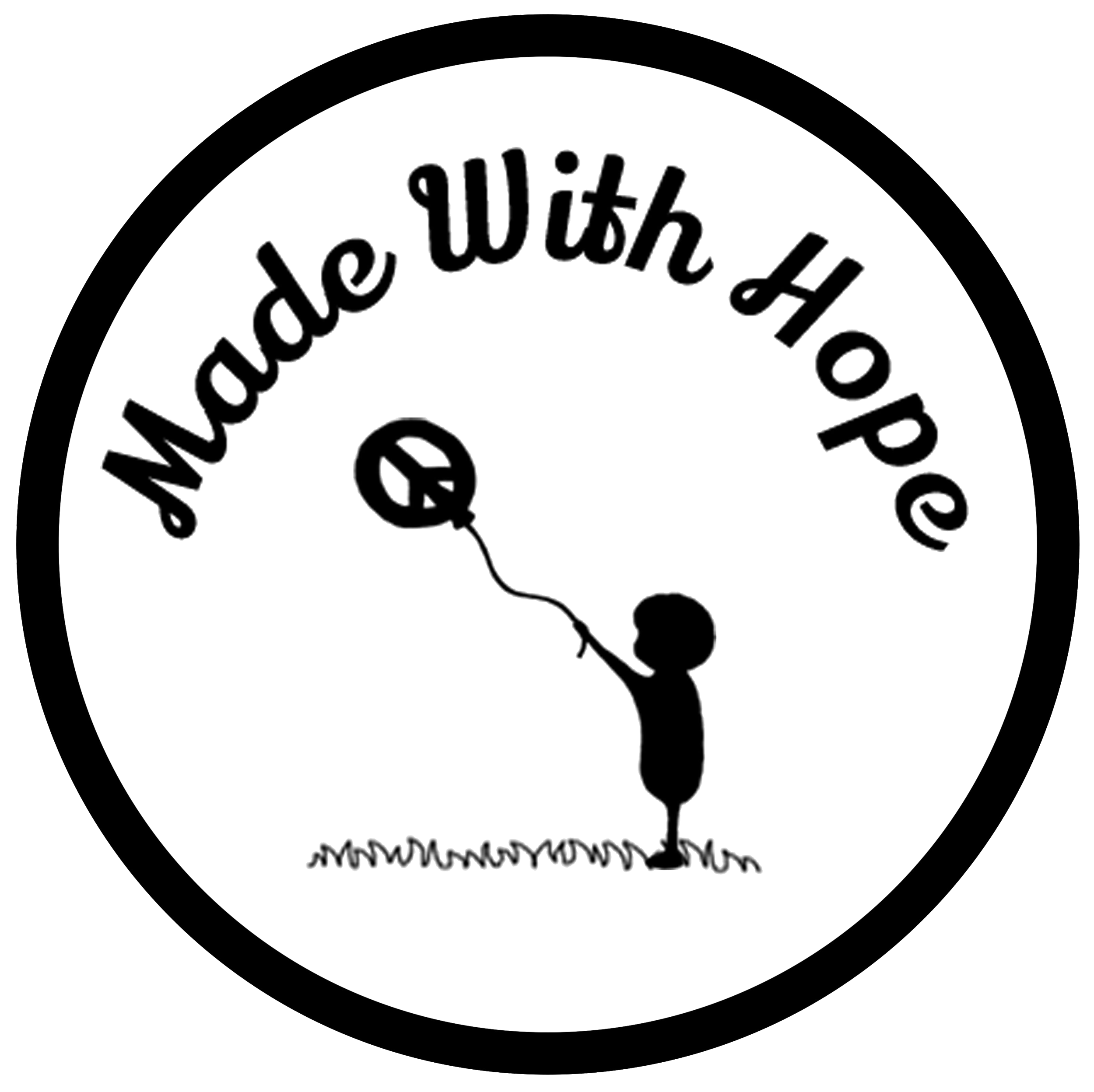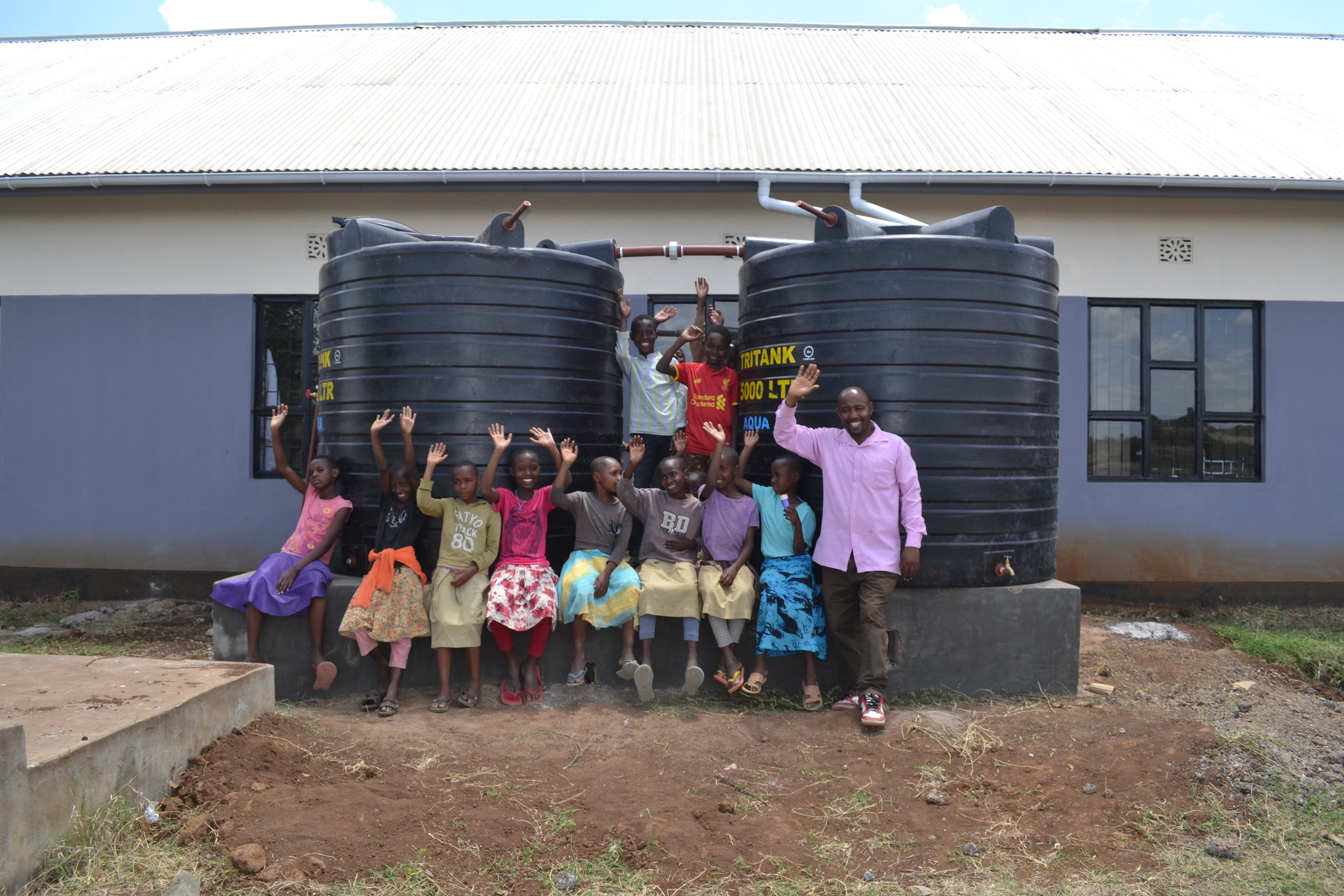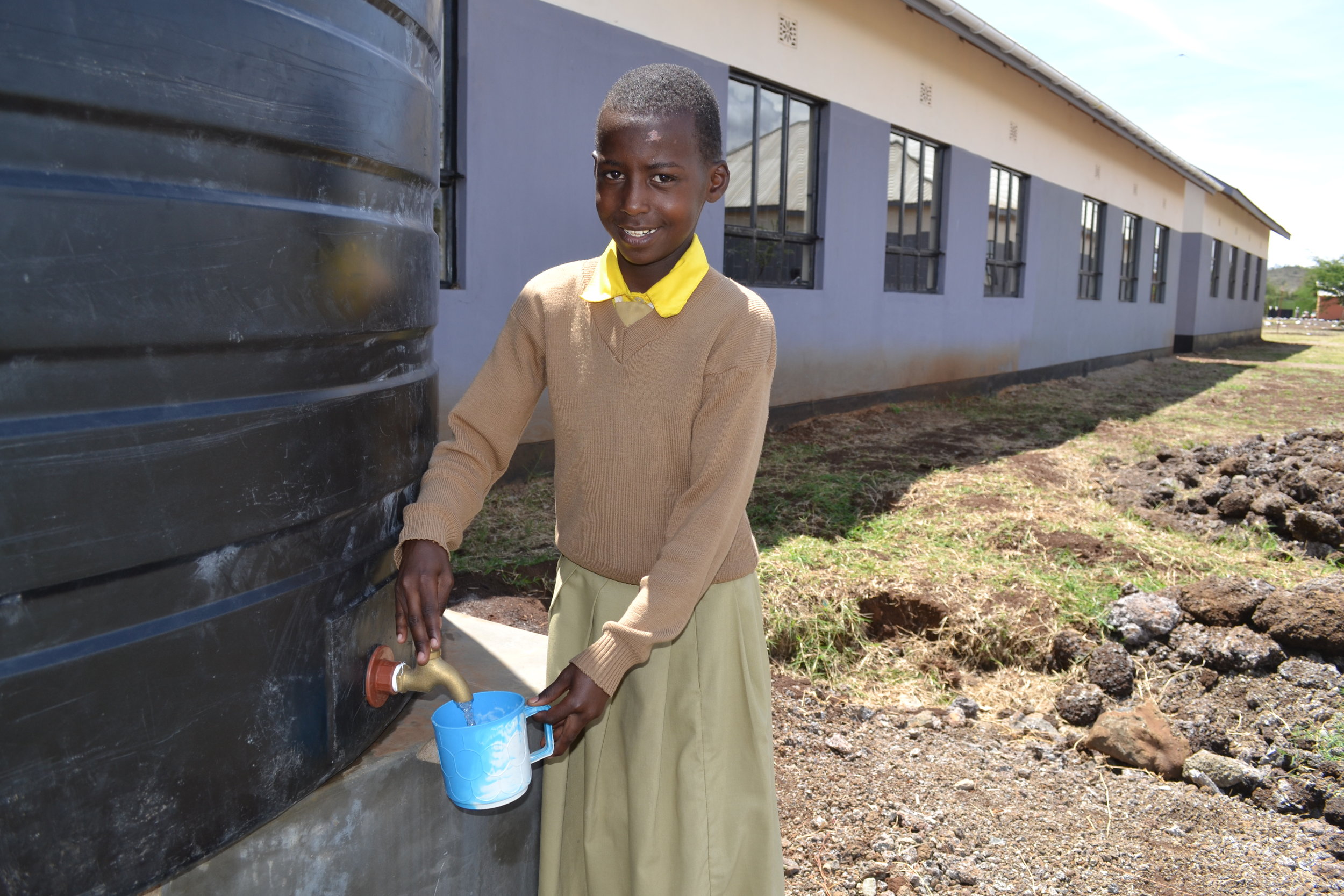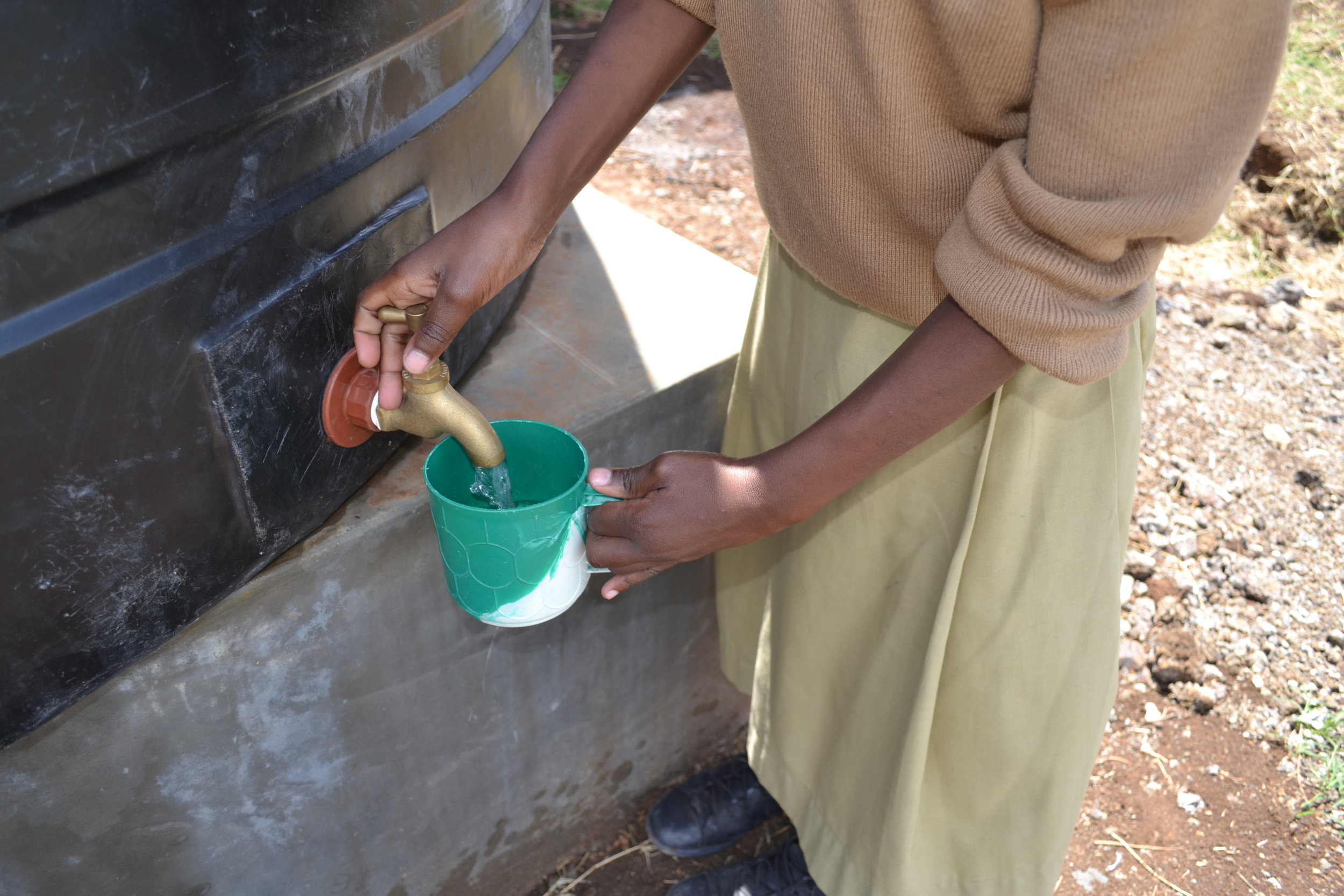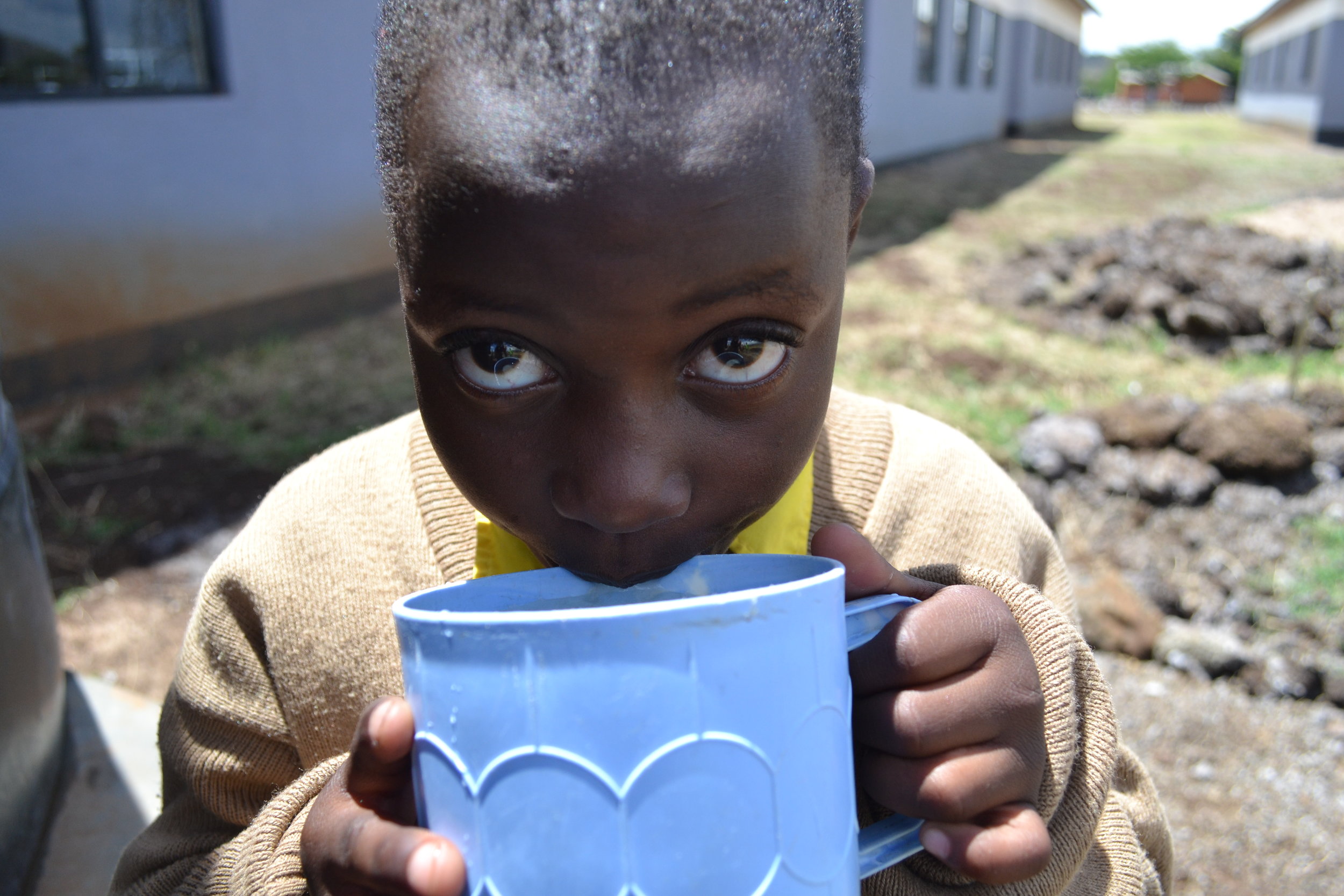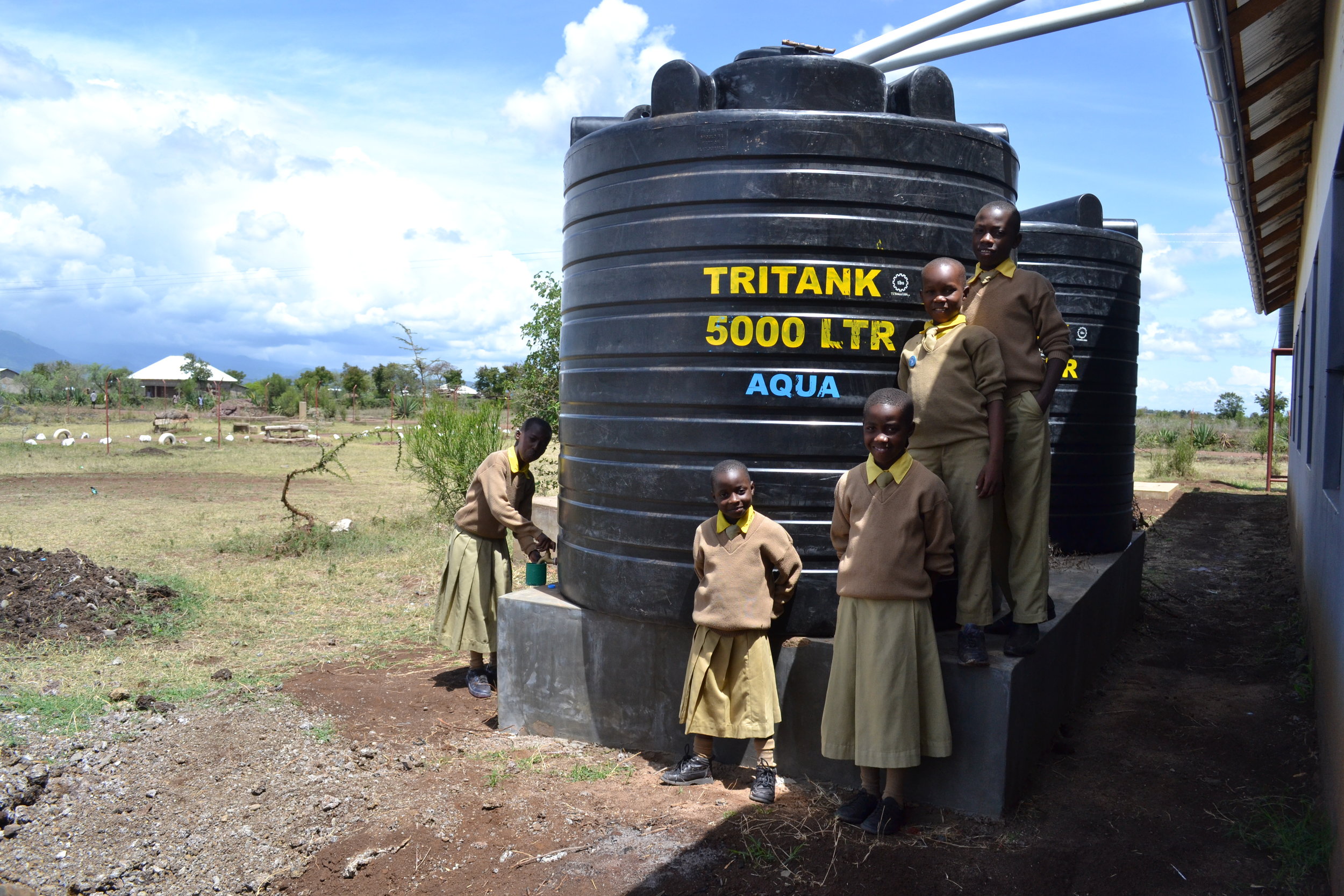Launch of Rain Water Harvesting Pilot
As part of our Water Is Life initiatives, we have launched a pilot for rain water harvesting pilot in Muriet, Tanzania. We have supported the cost of 3 x 5,000 litre tanks.
Why does this project exist?
In Nadasoito, rural Arusha, Tanzania, there is no safe groundwater for people to drink due to dangerous levels of fluoride and lack of access to water. CHETI Primary and Secondary School, our Tanzanian partner schools, are based in Nadasoito and currently educate 1,086 students, of which around 20% are orphans. There is a compelling need to support these children with clean, safe drinking water.
There is limited water supply to the rural communities like Nadasoito. The nearest regular water supply is 10km from Nadasoito. Water in this region is naturally very high in fluoride with levels of 7.6 mg/L (WHO recommends fluoride levels should be under 1.5 mg/L). High levels of fluoride in primary school-aged children can cause weakening of the teeth, skeletal damage such as osteoarthritis (1, 2). We have visibly seen the effects of these high fluoride levels on the local population's teeth, which encouraged us to investigate further. A recent scientific review found 34 human studies and 100 animal studies linking fluoride to brain damage (3).
According to CHETI NGO, the Tanzanian government have not yet developed a solution to the lack of water in rural villages and the fluoride issues with this water. In 2016, Made With Hope started tackling this issue through the purchase of a tractor to transport groundwater and purchasing water filters. However, this was not cost-effective, sustainable and meant we were damaging the environment through releasing greenhouse gases. In 2018, we launched a pilot to tackle these water issues, which involved installing 3 rainwater harvesting systems. We found them to improve the situation; enabling children to drink less high-fluoride water and reduce the number of trips to collect groundwater by 70%.
Collecting water using the tractor is damaging to the environment. We are currently releasing 39.6 kg of carbon dioxide per week or just over 2 tonnes of CO2 every year and purchasing 15 litres of fuel per week.
We will be monitoring this pilot over the next few months to determine it’s success.
From previous research, we are confident that the pilot will be a success and we can begin to significantly increase the amount of tanks available over the next 2 years to be able to provide up to 1,000 children and staff with safe drinking water.
The Proposed Solution
Launch a rain water harvesting pilot and measure the impact of collecting rain water for the students to use at school.
Details about the costs
Cost of the pilot: £1,622
What this bought: 3 tanks, guttering, pipes, taps, cement and labour to install
Update: We are pleased to say that this project has been a great success in collecting clean, safe drinking water. We are now expanding this project to bring clean water to 1,086 children by 2020. Click below to learn more and support our campaign.
References
World Health Organisation, 2019. https://www.who.int/water_sanitation_health/diseases-risks/diseases/fluorosis/en/
Fluoride Action Network, 2019. https://fluoridealert.org/issues/health/skeletal_fluorosis/
Fluoride Action Network, 2019. https://fluoridealert.org/issues/health/brain/
The Renewable Energy Hub, 2019. https://www.renewableenergyhub.co.uk/rainwater-harvesting-information/rainwater-harvesting-warranties-and-maintenance.html
